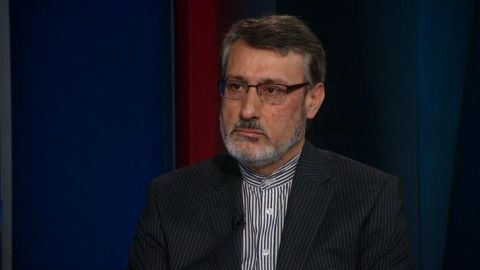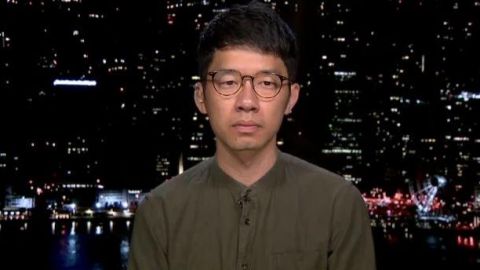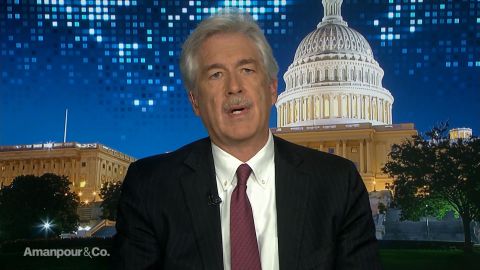Read Transcript EXPAND
CHRISTIANE AMANPOUR: Give me where you stand on what is going on in the heat of this rhetoric now, as Javad Zarif’s economic warfare by the United States being waged against Iran.
WILLIAM BURNS, FORMER U.S. DEPUTY SECRETARY OF STATE: I really am worried about the dangers of escalation right now. I mean, I would say, first, I believe Iran was responsible for the recent attacks on tankers in the Gulf. I think those attacks were reckless and dangerous. But the fact you have to ask the question about responsibility, the fact that the administration seems to be having such a difficult time persuading some of our closest allies of our case is a mark, I think, of how much our credibility has suffered and how much we have isolated ourselves since President Trump made the really unfortunate decision to abandon the comprehensive nuclear agreement. So, I worry right now that hard-liners on both sides in Washington and in Tehran are beginning to climb up a very unsteady escalatory ladder.
AMANPOUR: So, where do you think this is heading? I mean, you say escalatory. I mean, you could describe it as a real massive vicious cycle is in effect right now with the U.S. doing one thing, the Iranians doing one thing and back and forth, back and forth. It is possible that accidentally or deliberately there could be a military confrontation. Given that you’ve been there before, in all your years, how do you think that will play out? I mean, a full-scale invasion of Iran? A strike in the gulf? What do you think is going to happen?
BURNS: Well, I mean, the Middle East, as you well know, Christiane, is kind of land of unintended consequences. I don’t think President Trump has any intention of a military intervention and invasion of Iran. But, you know, it’s a world in which, especially, in the gulf, which is crowded and combustible right now, you can have inadvertent collisions, especially when the two sides are not talking to one another and those collisions can escalate very quickly.
AMANPOUR: Can I ask you to use your experience and flesh out why you think Iran was responsible? I mean, you heard the questions that I asked the ambassador about them having responsibility for security there. But the German foreign minister says that whatever has been said by the U.S. administration does not amount to significant and determinative evidence. You have Russia and the rest of the Europeans calling for calm and de- escalation and not be, you know, too trigger happy. And you have doubts being raised by, you know, analysts about the speed with which the U.S. is now prepared to say, “Well, our intelligence shows this.” What is it that makes you say that it is them? And if it’s them, who is it?
BURNS: Well, I mean, I don’t have access to, you know, the information that the administration has right now. But this does fit a pattern of past Iranian activity.
About This Episode EXPAND
Christiane Amanpour speaks with Hamid Baeidinejad and William Burns about the current stand-off between the United States and Iran. Nathan Law joins the program to discuss protests in Hong Kong. Walter Isaacson speaks with Tracy K. Smith, the 22nd U.S. Poet Laureate, about her new book, “Wade in the Water.”
LEARN MORE



